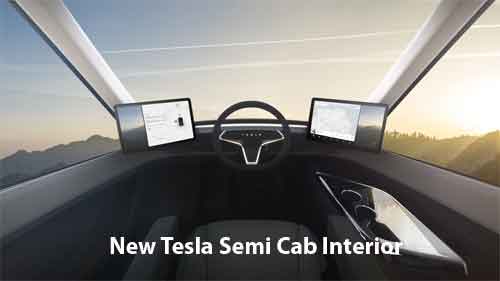Tesla released its design for a new all-electric last week in an airport hangar in Hawthorne, CA in a spectacle orchestrated by company founder Elon Musk.
The big news for the Tesla Semi is the promised range for the new class 8 tractors. The company said the standard version – with a price of $150,000 – will have a range of 300 miles from a full battery charge. An enhanced version with a price tag of $180,000 will get 500 miles from a charge. However, it should be noted that Tesla is calling those figures "expected base prices," so they could change.
Just as importantly, the company is promising a network of superfast solar-powered charging stations across the US that it says will be able to charge the larger battery model to 80% capacity to support a 400-mile range in just 30 minutes.
On a follow up podcast, Tesla offered its view of the likely economics of its new truck, for which it is now taking orders for claimed delivery in 2019.
"If a trucker travels 90,000 miles a year - let's say the cost of fuel for a diesel truck is $2.70 a gallon. And let's say that's 35 cents per mile. If you think about that, for fuel alone, that's $31,000 to $32,000 that that trucker is spending," a Tesla spokesperson said.
"If you're using battery-charging to power your truck, you're saving thousands of dollars a year and that definitely is lucrative for a lot of truckers when it comes down to it, or their companies," the podcast added.
According to an earlier in-depth analysis by the web site The Verge, an average Class 8 truck costs around $120,000 and burns about $70,000 of diesel fuel per year, costing about $0.54 per mile. By contrast, the Tesla Semi will consume less than 2kwh of electricity per mile, or about 26 cents based on the average cost of electricity in the US.
Tesla estimates that adds up to $200,000 in fuel savings over the life of the truck. Electric engines should also much cheaper to maintain than gas-burning engines.
The Tesla truck offers other changes to how freight trucks work today. For example, as shown in the photo below, the new age cab features two display screens – similar to what Telsa offers in its passenger cars – that allow drivers to quickly relay information to drivers and operate various vehicle control systems.

Interest is clearly high. Walmart has pre-ordered 15 of the trucks for testing when they become available. Rival Meijer has ordered four of the new trucks, while carrier JB Hunt says it has reserved "multiple" new Tesla Semis. Hunt says it plans to use the Teslas to support operations on the West Coast, a region with increasingly strict emissions regulations. The tractors would be tested in Hunt's intermodal and dedicated contract services divisions.
More orders are sure to follow from other carriers and private fleets.
Some Question if All this is Real
Is Tesla betting it can deliver on the promised batteries and range from improvements in the technology between now and 2019?
Several months ago, battery experts Venkat Viswanathan and Shashank Sripad estimated for an article in Wired magazine that next-generation "beyond-lithium-ion battery-pack" could provide a 600-mile range at a cost of about $180,000, leaving enough room for a payload of only about 16 tons. And those next generation batteries aren't here yet – and may not be for years.
And Heavy Duty Trucking magazine last week quoted Julie Furber, executive director of electrification business development at engine maker Cummins as saying "The current battery technology just isn't ready for the linehaul market where trucks can run up to 140,000 miles annually," adding that "We've done some rough calculations that show you'd need a battery that weighs 22,000 pounds to complete a full day's driving at highway speeds."
Some skeptics also note Tesla provided little details on the actual battery technology being planned for these new trucks.
Others note the range figures provided may not account for things like trucking up hills, which can drain the battery very quickly, just as it burns lots of diesel fuels in a traditional engine.
What's more, a recent Carnegie Mellon study on electric semi trucks determined that "a 300-mile-capable battery pack costs about $200,000" today. How much will that change in just two years?
Other note that the technology for rapid charging of batteries also doesn't exist yet. Other say that the solar panel arrays to support the planned charging stations would take up large amounts of real estate and thus are impractical in urban and other areas.
Nikola Motors, in fact, started out with a plan to produce electric trucks, but became convinced the technology wouldn't supported large trucks and switched its focus to hydrogen fuel cell technology for its tractors instead. (See Will Hydrogen Fuel Cell Trucks be the Answer in the End?)
Meanwhile, others question that CO2 emissions benefit when considering the end-to-end supply chain of producing and charging the batteries.
Writes editor Jim Park of Heavy Duty Trucking: "There's no compelling evidence that this truck will perform the way Musk says it will. And there's even less compelling evidence that it, or something like it, will be on the market by 2019."
So there you have it. Is the Tesla Semi a game-changer in logistics, or something of a fantasy sure to disappoint? We'll all find in 2019.
Is the Tesla Semi real? Let us know your thoughts at the Feedback button below.

|